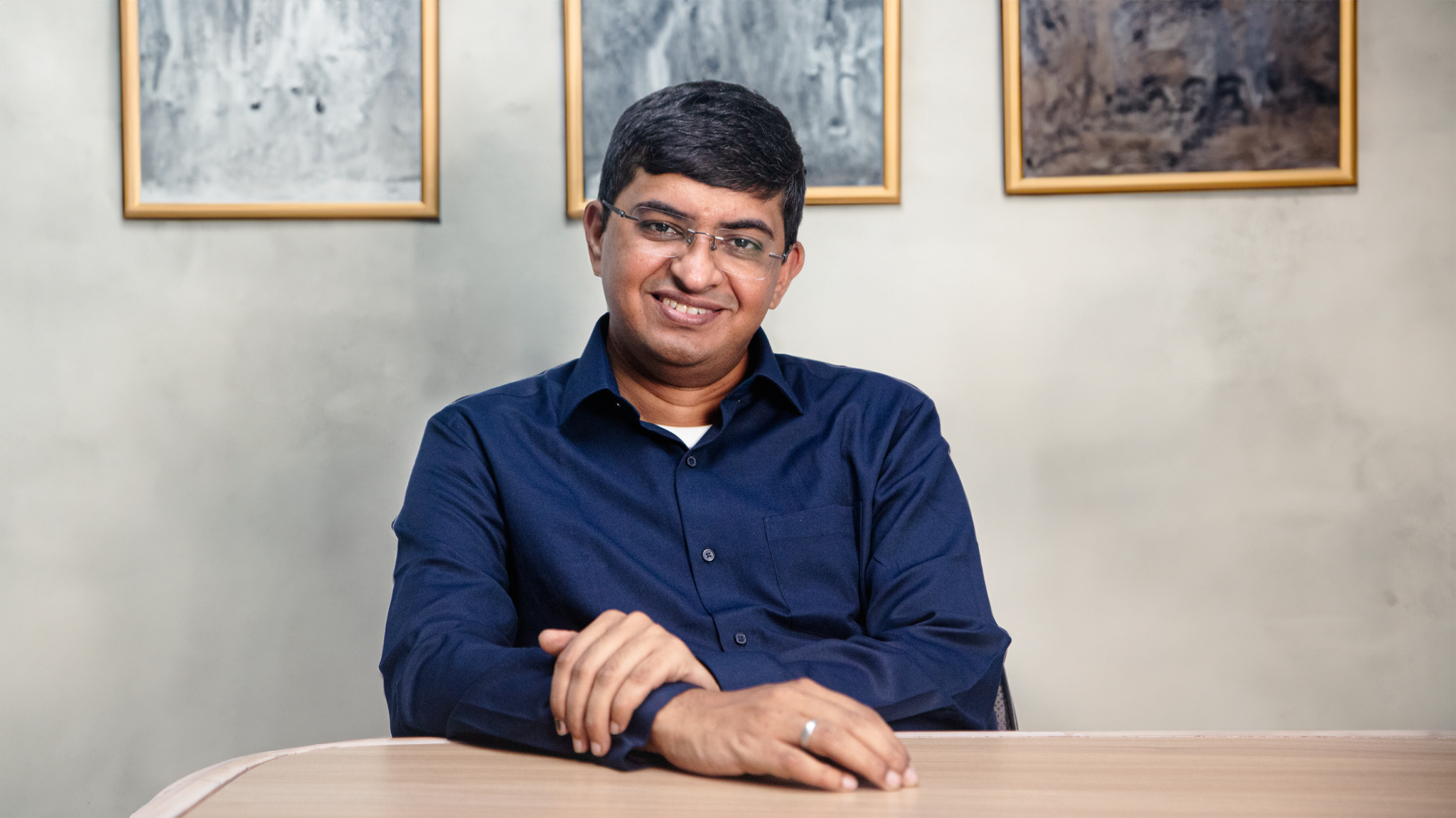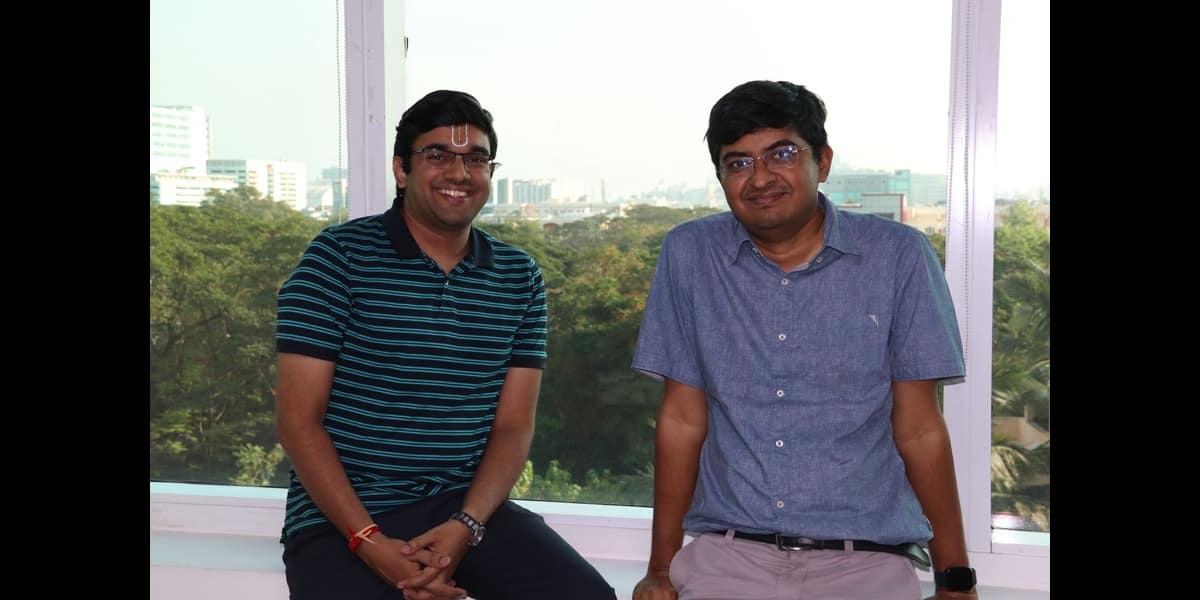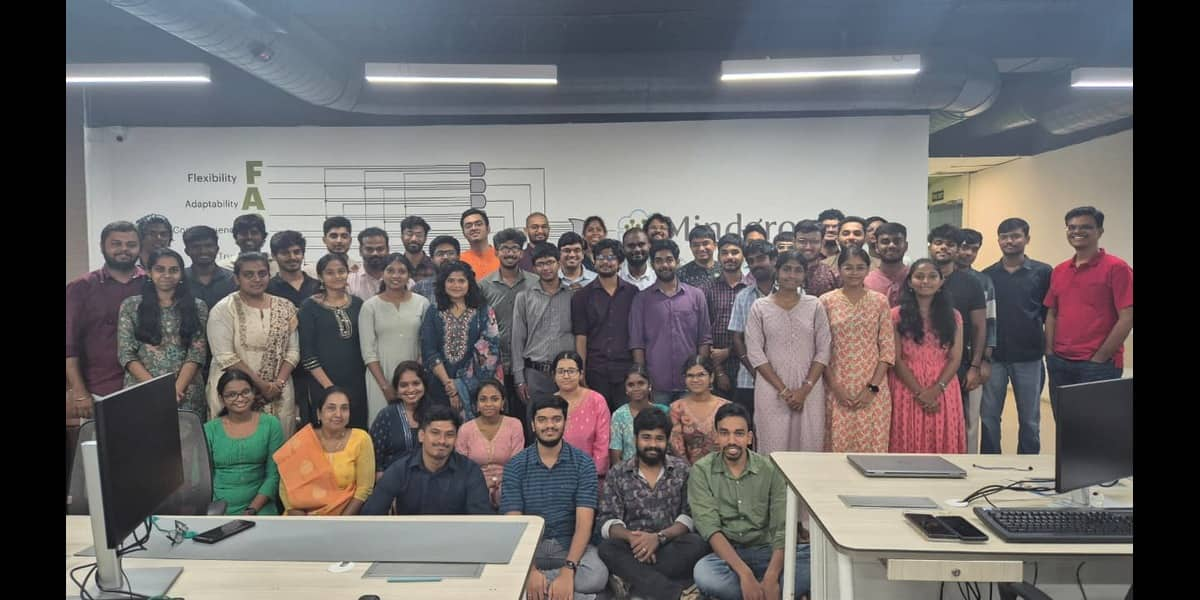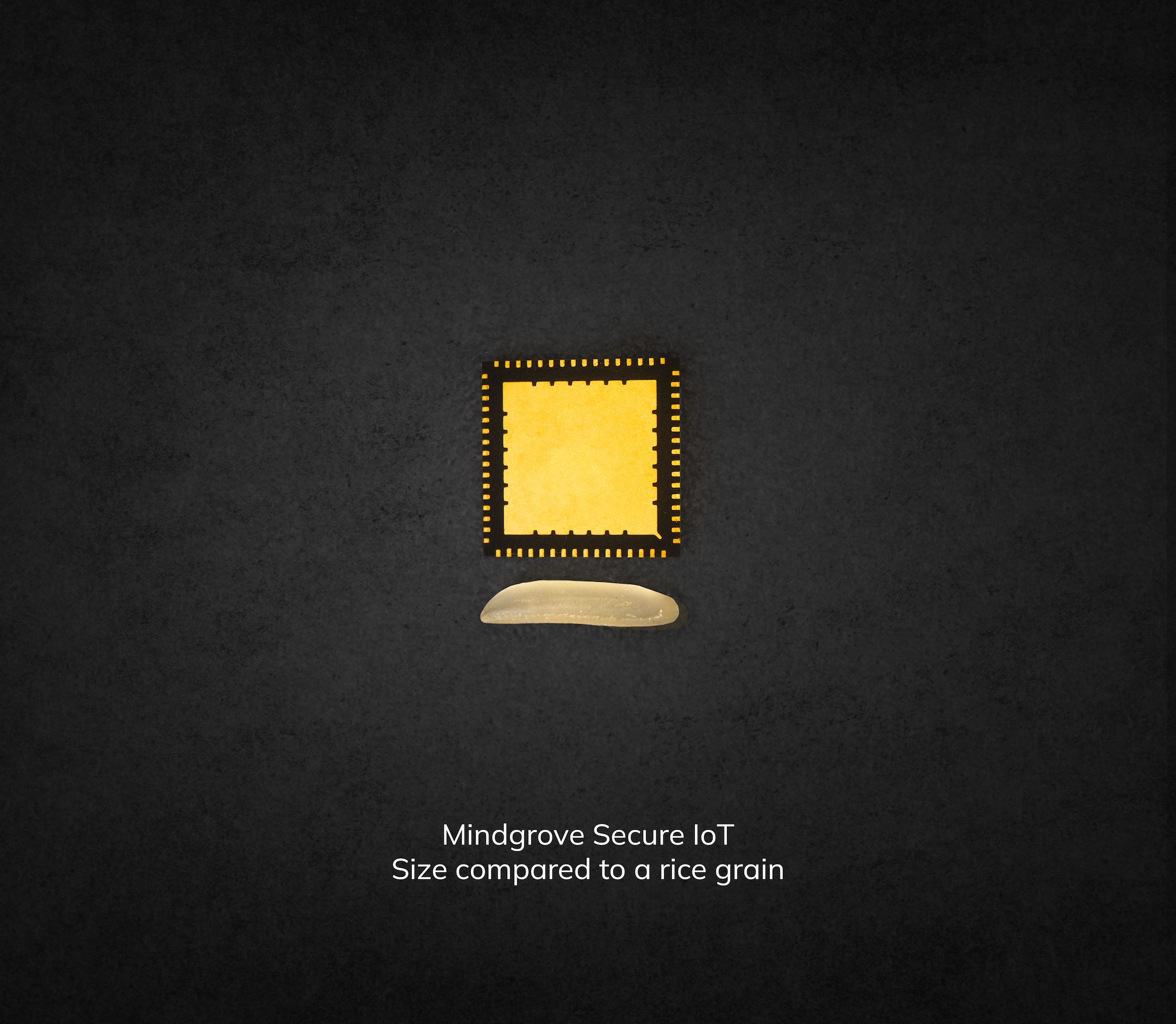



When Shashwath TR decided to build a semiconductor startup in India, even he admits, it sounded absurd.
“In 2021, we started out with no idea what we were going to do. By the end of that year, we had committed to building a chip,” he recalls. “Nobody in their right mind would happily attempt that. But we did.”
That leap of faith laid the foundation for Mindgrove Technologies, a Chennai-based fabless semiconductor design startup, incubated at IIT Madras.
Four years later, it’s one of India’s most promising deeptech ventures: designing and building commercial-grade chips from the ground up, working with partners like Bosch Global Software Technologies (BGSW), and preparing to scale production of its first System-on-Chip (SoC) for Internet of Things (IoT) devices.
In an industry where timelines stretch across years and costs touch millions, Mindgrove’s progress represents more than a startup milestone; it’s a quiet assertion that India can build its own silicon.
The long wait before the leap
Before semiconductors, there was software. For years, Shashwath, an electronics engineer from SRM Engineering College (Chennai), spent over a decade at Lucid Software in Chennai developing code for non-destructive testing, industrial tools that used ultrasound and sensors to test materials.
It paid the bills, but didn’t light him up. “I’d been looking for a way to build hardware since 2015,” he says. “By late 2020, I decided to take the leap.”
His colleague from that job, Sharan Srinivas from IIT-Madras, shared the same itch. Together, they left the comfort of software and started exploring how to actually build chips: something neither had done before.
“We didn’t come from flashy product backgrounds…we were writing testing software,” he laughs. “But we wanted to make something that was ours, something real.”
That desire to create physical technology in a country that mostly writes software for others became their north star.
 Shashwath TR, CEO, Mindgrove Technologies
Shashwath TR, CEO, Mindgrove Technologies
Pitching an idea, not a product
In early 2021, the duo walked into IIT Madras with an idea that would sound audacious anywhere, let alone in Chennai: they wanted to build a chip company.
“We got a Rs 39-lakh grant from IIT Madras,” recalls Shashwath. “That’s what helped us start…just enough to build a small team and begin experimenting.”
The institute’s ecosystem, which had incubated the Shakti Processor Project, India’s first indigenous open-source processor developed by Reconfigurable Intelligent Systems Engineering (RISE) group at IIT-Madras, became their launchpad.
“We started off by taking technology from the Shakti processor with the blessings of Professor Kamakoti…it was an academic project…and our focus was to build a commercial version of Shakti itself,” says Shashwath. Professor Veezhinathan Kamakoti, the director of IIT Madras, had spearheaded the development of Shakti.
And thus, Mindgrove was born.
For the uninitiated, Mindgrove is a fabless semiconductor company. It doesn’t own a chip factory. Instead, it designs chips and outsources fabrication to foundries such as TSMC, Taiwan.
“In the old days, design and manufacturing were under the same entity,” says Shashwath. “But the world has since moved to a modular ecosystem…companies like NVIDIA, AMD, and Qualcomm design the chips, while foundries make them. We do the same…we design, get it manufactured, and sell it under our brand.”
That’s the simple version. But what they actually do, he says, is closer to writing software that becomes hardware.
“At the most basic level, what we do looks like writing software,” he explains. “But instead of compiling something that runs on a computer, we compile something that gives the computer itself a brain.”
It’s this translation from code to silicon that forms the soul of Mindgrove’s work. The company specialises in microcontrollers and microprocessors, the tiny systems that power everything from smart locks to washing machines and biometric readers.
 Representative image
Representative image
From five engineers to India’s first secure IoT chip
When Mindgrove started, it wasn’t a high-end R&D lab but a handful of engineers, a few interns, and a mountain of conviction. “Fifty-six people, including interns,” says Shashwath. “That was the whole team when we built our first chip.”
Their first product, Secure IoT, became a quiet milestone in India’s tech history, the country’s first commercial-grade, high-performance microcontroller SoC taped out at 28 nanometers.
The chip was built for connected devices like smart meters, POS machines, industrial controllers, and wearables, all needing secure and reliable local computing.
“We wanted to make something that could be cross-sold across verticals…automotive, robotics, smart devices…instead of niche, one-off designs,” he says.
From those first design simulations to getting back the finished silicon took over a year. The wafer was manufactured in Taiwan, but the design, architecture, and validation were all done in India.
 (L-R) Sharan Srinivas J. (CTO and Co-founder), Shashwath T. R. (CEO and Co-founder)
(L-R) Sharan Srinivas J. (CTO and Co-founder), Shashwath T. R. (CEO and Co-founder)
The long road to silicon
Designing a chip is not a sprint; it’s a marathon with pitstops in physics, coding, and patience. “You can’t build a chip overnight…it can take anywhere from three months to five years, depending on the complexity,” says Shashwath. “We spent 2022, researching markets and raising capital, 2023 building the first chip, and 2024 testing and refining it. We got it back from the foundry in April 2024, put it on a board, confirmed it was working, and began sampling with customers.”
Every prototype, or tape-out, costs a fortune. Sometimes over a million dollars.
“We made one chip using our seed round of $2.3 million, and had some of it left when we got the chip back,” he laughs. “That should tell you how capital-intensive this industry is.”
After fabrication, packaging and testing add another layer of complexity, which is why India’s new ATMP (Assembly, Testing, Marking, and Packaging) industry excites him.
“After the wafer is made, it needs to be diced, packaged, and tested before being sold,” he explains. “Selling globally is possible, but it’s simpler when we work with Indian partners.”
Today, Mindgrove is in talks with Kaynes, CG Power, and Tata Electronics for local packaging and testing. The chips are currently manufactured at TSMC, but the firm plans to partner with Tata’s upcoming fab in Dholera, Gujarat, once it goes live.
“Local sourcing reduces time-to-market significantly,” he says. “We just need to balance capabilities with cost.”
 Team Mindgrove Technologies
Team Mindgrove Technologies
Secure by design: Protecting data in hardware
If Mindgrove’s first chip was about performance, its philosophy was about trust.
The Secure IoT SoC includes built-in encryption accelerators, making it ideal for biometric sensors and authentication devices.
“Let’s say you have a biometric sensor used for Aadhaar authentication,” explains Shashwath. “When you put your finger on it, the derived data should only be readable by authorised hardware — not even the device itself should be able to see the raw fingerprint. We enable that in hardware.”

A camera chip and beyond
Having validated its first chip, Mindgrove is now developing its second — Vision SoC, aimed at CCTV cameras, dashcams, video recorders, ADAS systems, and smart TVs. The project received Rs 15 crore in funding under the Ministry of Electronics and IT’s Design-Linked Incentive (DLI) scheme.
“The Vision chip is more complex…it involves high-speed work like processing camera data,” he says. “We’re only about a third of the way into the design yet. It’ll take us some time to get through certification and testing.”
Mindgrove’s partnership with BGSW is another turning point. BGSW will validate the first chip and co-develop solutions around it.
BGSW gains an agile local design partner building on RISC-V architecture, an emerging open-source alternative to ARM — while Mindgrove gains validation from one of the world’s most respected engineering brands.
Why this matters
India contributes roughly 20 percent of the world’s semiconductor design talent, but “we have zero Indian-designed products in the market,” says Shashwath.
Most local engineers design for global companies; the intellectual property is owned abroad. Mindgrove’s mission is to flip that equation: design and ownership rooted in India.
“A lot of chips you get from outside aren’t designed for the ecosystem you find here,” he says. “We’re working with OEMs so they can use SoCs with Indian support — including documentation they can understand. That reduces time-to-market and cost of development.”
It’s a quiet but radical idea --not just making India a participant in the chip supply chain, but a creator within it.
Funding, focus, and the fine balance
Mindgrove has raised $8 million so far, led by Rocketship.vc, Speciale Invest, and Peak XV Partners, and backed by Mela Ventures, Whiteboard Capital, and others. It also secured DLI scheme funding from the government.
But Shashwath isn’t rushing into another round. “We’re taking a breather this year,” he says. “I want to get the chip into the market before we start talking about raising again.”
The startup is targeting EBITDA (Earnings before interest, taxes, depreication and amortisation) -positivity by FY26–27, though Shashwath admits forecasting is tricky. “Lead times are fluctuating because of tariffs and supply chain issues,” he notes. “Sometimes we get paid before delivery, but we can’t recognise revenue until shipment, so predicting numbers is tricky.”
(This story is part of Moneycontrol’s Deeptech Digest series, which spotlights India’s most promising startups building cutting-edge technologies.)

Discover the latest Business News, Sensex, and Nifty updates. Obtain Personal Finance insights, tax queries, and expert opinions on Moneycontrol or download the Moneycontrol App to stay updated!